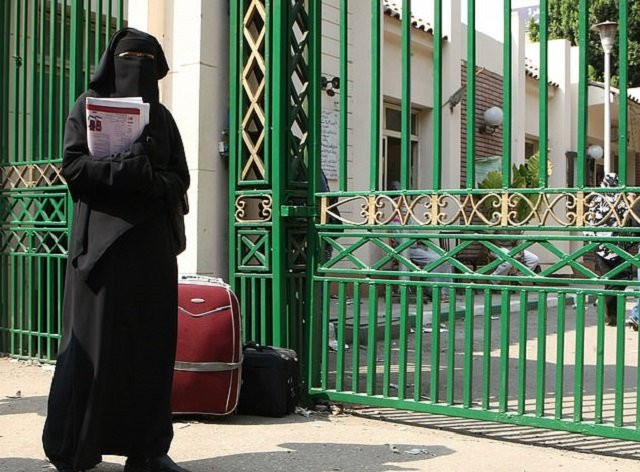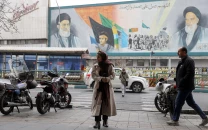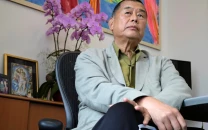Top court backs niqab ban on Cairo University staff
Most Muslim women in Egypt wear the headscarf, or hijab, which covers the hair but not the face

This file photo shows a woman standing outside Cairo University where women staff are banned from wearing the niqab. PHOTO: AFP/FILE
The decision taken by the Supreme Administrative Court last week rejected appeals against a 2016 lower court verdict banning the niqab on grounds that it impeded interaction between students and teachers.
The ban on the niqab, which covers the entire face except for the eyes, has often sparked fierce debate on religious freedoms.
"The ruling is final and not subject to appeal," said Mahran, who represented 80 women in challenging the 2016 ruling.
Most Muslim women in Egypt wear the headscarf, or hijab, which covers the hair but not the face.
Canada court hears appeal against ban on hijab, other religious symbols
The ban was introduced in 2015 by a previous head of Cairo University, two years after the 2013 military ouster of Islamist president Mohamed Morsi.
Mahran said the decision was issued for "political reasons" at the time.
"But it never came into effect. I do not expect it to be applied now," he added.
Cairo University is one of Egypt's oldest higher education institutions.
Its current head, Mohamed Othman Elkhosht, quoted by local media, said his institution respected decisions taken by the judiciary but did not specify if the ban would be enforced.


















COMMENTS
Comments are moderated and generally will be posted if they are on-topic and not abusive.
For more information, please see our Comments FAQ